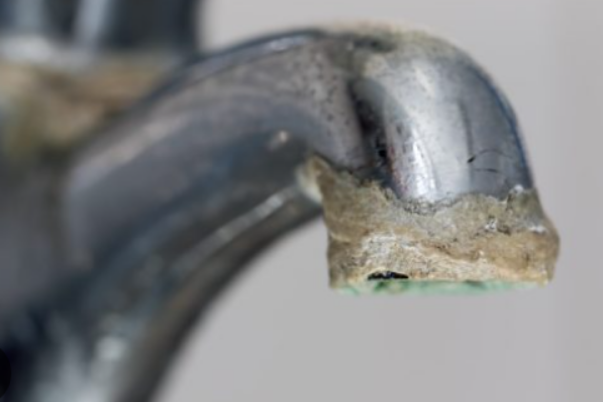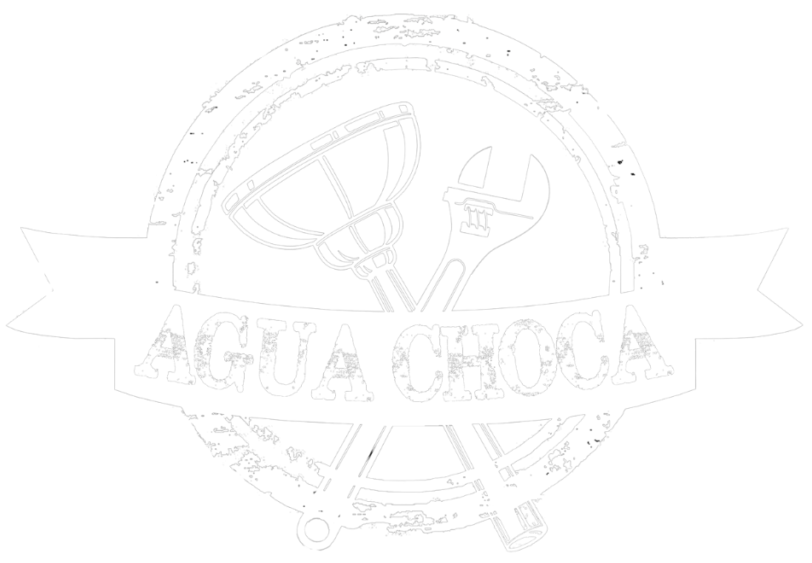
White marks on taps. Cloudy kettle water. A shower screen that never looks truly clean. If this sounds familiar, you’re dealing with limescale, an everyday challenge for many Algarve households. This guide explains why it happens, what it does to your plumbing, the quick wins you can try today, and the longer‑term solutions Agua Choca can install to protect your home in Faro, Loulé, Albufeira, Portimão, Lagos and across the region.
Why Algarve Homes Suffer from Limescale
Hard water contains elevated levels of dissolved minerals (mostly calcium and magnesium). When heated or left to evaporate, inside kettles, water heaters, showerheads, taps and pipework, those minerals precipitate into the chalky, stubborn deposits we call limescale. Coastal conditions, groundwater sources and mineral‑rich aquifers make limescale a common reality here.
Typical signs include:
- Chalky rings in kettles and white crust on taps and showerheads
- Stiff laundry and glassware that won’t sparkle
- “Flat” or weak showers as scale starts to clog aerators and mixers
- A water heater that seems to run longer but deliver less
What Limescale Does to Your Plumbing (and Bills)
Left unchecked, limescale can:
- Reduce pipe diameter and flow, leading to pressure complaints and slow‑to‑fill fixtures
- Insulate heating elements, forcing water heaters to work harder and use more electricity or gas
- Wear out cartridges, valves and seals, increasing the risk of drips and early failure
- Shorten appliance life, especially kettles, dishwashers, washing machines and instant heaters
Quick Wins You Can Do Today
- Descale fixtures: Soak showerheads and aerators in warm white vinegar or citric acid, then rinse and brush.
- Wipe down after use: A quick dry of taps, tiles and glass stops mineral spots forming.
- Use descaling cycles on kettles, coffee machines and dishwashers per manufacturer guidance.
- Fit limescale‑resistant aerators: They’re inexpensive and slow down build‑up.
Long‑Term Solutions: Conditioner vs Softener
Not all solutions are the same. Choosing the right one depends on water use, space, budget and desired outcomes.
Scale inhibitors / conditioners (salt‑free):
- Treat water to make minerals less likely to stick to surfaces
- Pros: Low maintenance, no salt, compact footprint, suitable for many households
- Cons: Don’t fully remove minerals; best as prevention + easier clean‑off rather than total elimination
Ion‑exchange softeners (salt‑based):
- Swap calcium/magnesium for sodium/potassium, significantly reducing hardness
- Pros: Most effective at preventing scale inside pipework and appliances
- Cons: Requires salt, periodic regeneration and a drain connection; needs enough install space
Pre‑filtration and point‑of‑use options:
- Sediment pre‑filters protect valves and appliances
- Under‑sink cartridges can improve taste and reduce scale at key outlets (e.g., kitchen tap)
Agua Choca can advise on the best mix, whole‑home protection, targeted outlets, or a staged approach that fits your home and budget.
Protecting Your Water Heater & Appliances
- Flush storage water heaters periodically to remove sediment and scale flakes
- Service instant water heaters to descale heat exchangers and maintain safe, efficient operation
- Add isolation valves at mixers and appliances to make future servicing fast and tidy
When to Call a Plumber
Reach out if you notice:
- Persistent low flow even after cleaning aerators and showerheads
- Noisy or inefficient water heaters (popping, rumbling, frequent temperature swings)
- Frequent cartridge failures in taps or thermostatic shower valves
- Limescale returning rapidly despite DIY efforts
Our Survey & Installation Process
- On‑site assessment: Visual check of key fixtures and appliances
- Hardness test: Simple measurement to understand your starting point
- Options & quote: Conditioner vs softener, pre‑filters, point‑of‑use upgrades
- Neat installation: Compact layouts, tidy pipework, clear labelling and isolation
- Aftercare: Maintenance schedule and tips to keep scale at bay
Conclusion
Limescale is common in the Algarve, but it doesn’t have to be costly. With the right combination of daily habits, targeted descaling and a professional prevention setup, you can protect your plumbing and lower running costs. Need help choosing the right solution? Contact Agua Choca, your local plumbing team in the Algarve.
